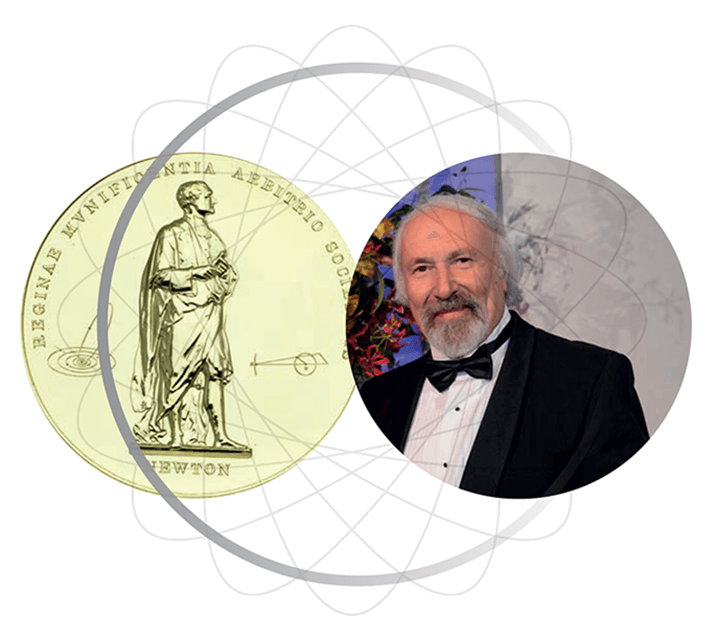Imperial College London’s Howard Morris has been awarded one of the Royal Society’s 2014 Royal Medals. Also known as the Queen’s Medals, the three annual awards recognize important contributions to the physical, biological and applied sciences. Joining the likes of Frederick Sanger and Francis Crick, Morris takes home a medal “for his pioneering work in biomolecular mass spectrometry including strategy and instrument design and for outstanding entrepreneurship in biopharmaceutical characterization.”

In response to the Royal Medal, Morris is understandably very proud: “It’s a great honor to have your work recognized by your peer group, and also a boost for the associated research areas.” Speaking of his area of research, Morris says, “There’s something particularly exciting about the structure elucidation of important biologically active materials. You have great difficulty pulling out some meaningful spectroscopic data from a biological mess of irrelevant impurities, but you then have to interpret the mass spectra to give the correct de novo structure. And your own and the group’s future reputation and funding hangs on that assignment! You finally crack the interpretation from first (mechanistic) principles and, in that brief moment, you are possibly the only person in the world to know the answer to Nature’s secret. I’ve been lucky enough to be in that position with the answers to the active form of Vitamin D (1,25 dihydroxy cholecalciferol), the first of the endorphins – enkephalin – the brain’s own opiate, the asthma bronchoconstrictor SRS-A, the putative inducer of malaria development in the mosquito (GAF), cellular differentiation inducing factors (DIFs) and numerous biologically active peptides and glycopeptides, including hormones and cytokines. Some of these breakthroughs actually made the national news!” Morris initially started his career intending to pursue a PhD in Theoretical Chemistry because at the age of 21 he thought it would be “sexy”. However, instead he joined the Astbury Department of Biophysics in Leeds to begin researching methods for protein sequencing by mass spectrometry. In the 60s, mass spectrometry ion sources could only handle volatile materials and the analytical mass range of even the best instruments was around 800 Daltons, which made working on polar high mass molecules, such as peptides and carbohydrates, extremely difficult. With an interest in engineering solutions, Morris made early contributions by either building ion sources in his own lab or suggesting new developments to manufacturers.
Later, Morris’ work led to more efficient soft ionization field desorption sources (on British-manufactured instruments), which helped define important antibiotic structures; the introduction of high field magnet instruments; the use of ion guns for high sensitivity fast atom bombardment analysis; the first non-scanning wide-angle array detector instruments (producing 10 femtomole detection of large polypeptides as isotopically resolved signals with good mass accuracy); and the tandem hybrid quadrupole orthogonal acceleration time-of-flight – ‘Q-TOF’ – geometry MS/MS instrument. Morris also founded the Imperial College Biomolecular Mass Spectrometry Group in 1975, the UK’s first laboratory dedicated to biomolecular MS. Today, the group is led by Anne Dell (Morris’ first PhD student from his Cambridge days). Morris, still at Imperial, is currently applying glycomic and glycoproteomic MS expertise to investigate novel structures present on bacterial pathogens. On the commercial side, he’s started up another company, called Biopharmaspec, that offers protein, glycoprotein and MS characterization expertise to biotechnology and pharmaceutical clients.
Morris, along with his fellow medalists, will be celebrated at the Royal Society’s Anniversary Day in November 2014. For a full list of medal recipients dating back to 1826, visit: royalsociety.org/awards/royal-medal
